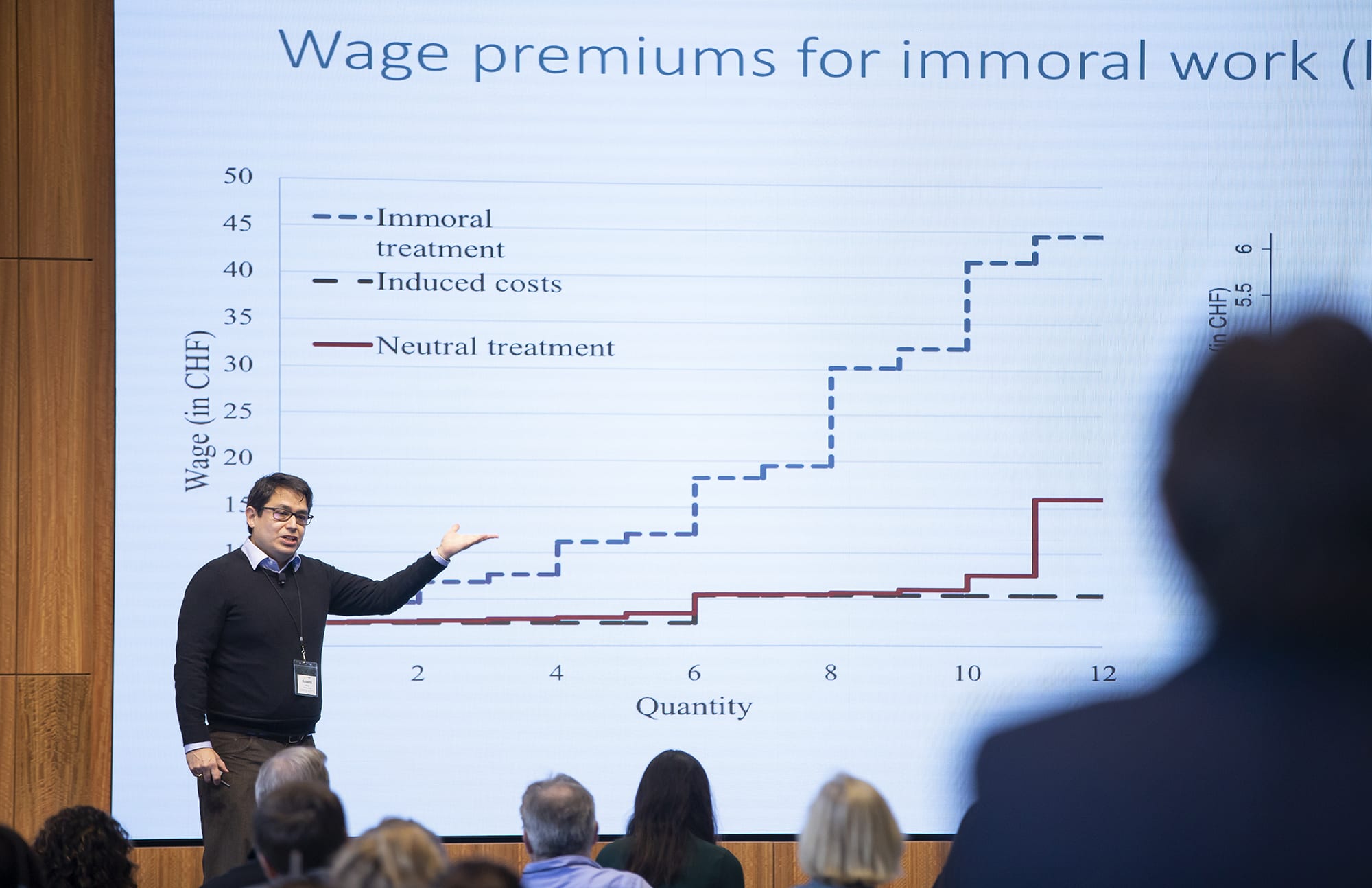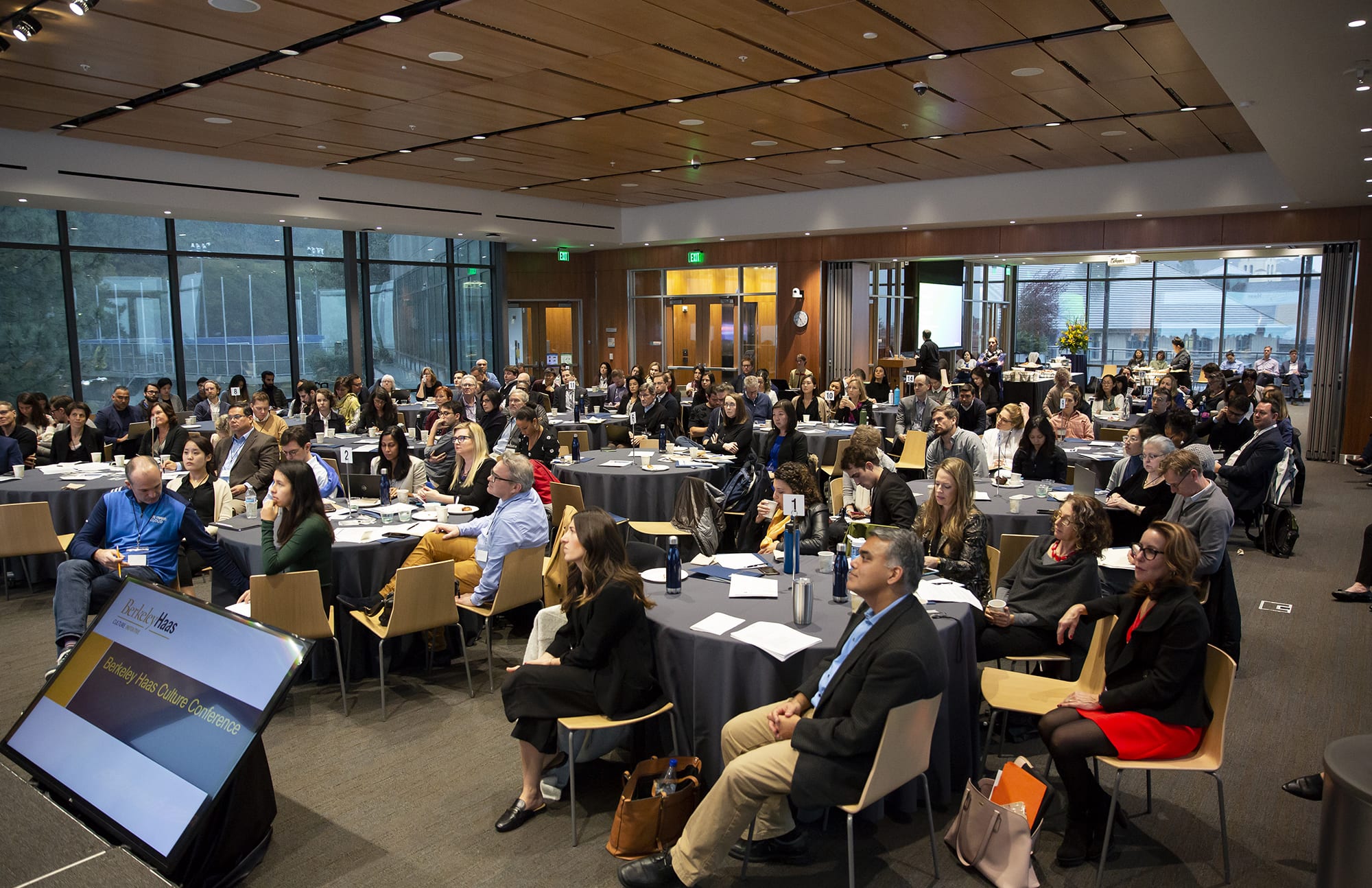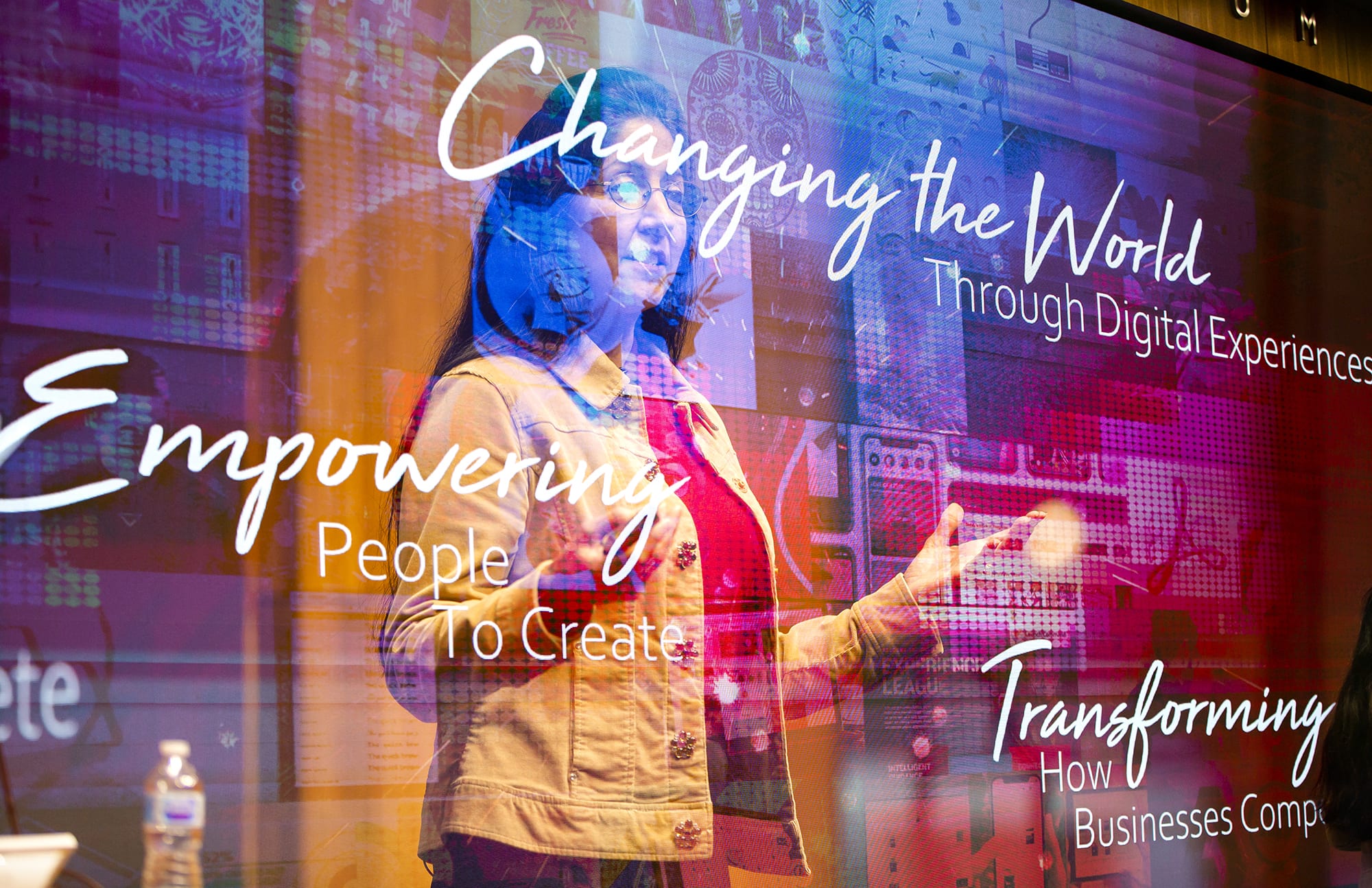Which cultures inspire individuals and teams to be the most creative? What’s the fastest way for cross-cultural groups to learn to communicate after a merger? How did Golden State Warriors Head Coach Steve Kerr use culture to put his team on top?
Those were just a few of the intriguing questions under discussion as more than 80 researchers came together with more than 90 leaders from some of the most sophisticated organizations on culture at the 2nd annual Berkeley Haas Culture Conference last week.
The conference, held on Jan. 15 and 16 on the Haas campus, aims to build a community of academics and practitioners to pioneer new research methods, spark research collaborations, and develop new tools for managing culture as a strategic asset. It’s the flagship event for the broader Berkeley Haas Culture Initiative, launched last year by Profs. Jennifer Chatman and Sameer Srivastava.
“The exchange of ideas between academics and practitioners bears incredible fruit,” Chatman said. “We’re really pleased with the steadily growing research collaborations that have been spawned by last year’s conference, and we are already planning for next year.”
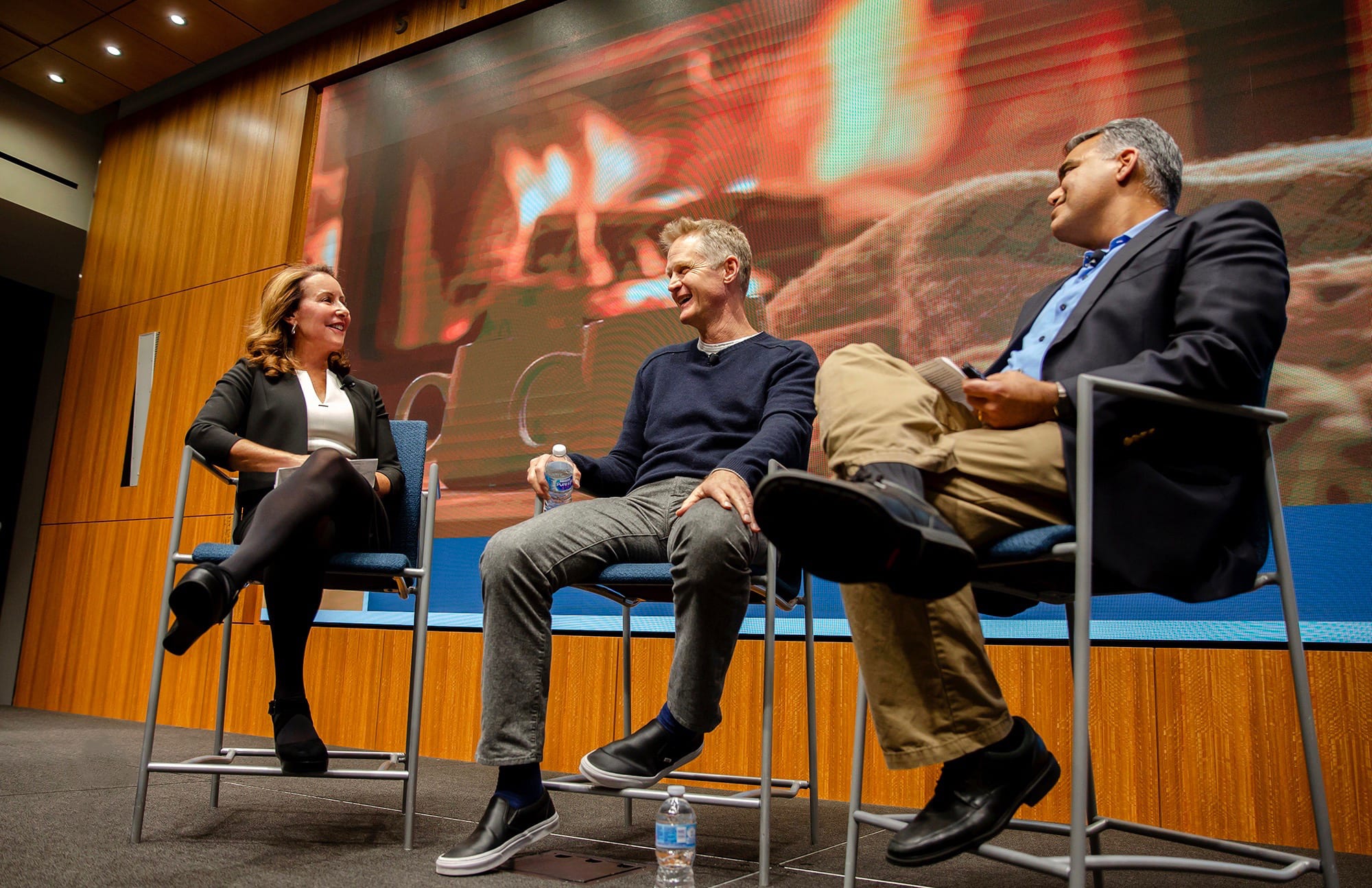
A highlight this year was a fireside chat with Kerr, who spoke about building the team culture around his own core values of joy, competitiveness, mindfulness, and compassion.
“I’m not an innovator. I’m really a product of my own experience, of what I’ve learned in the past,” Kerr said in an interview with Chatman and Srivastava. “The authenticity is what makes it work culturally.”
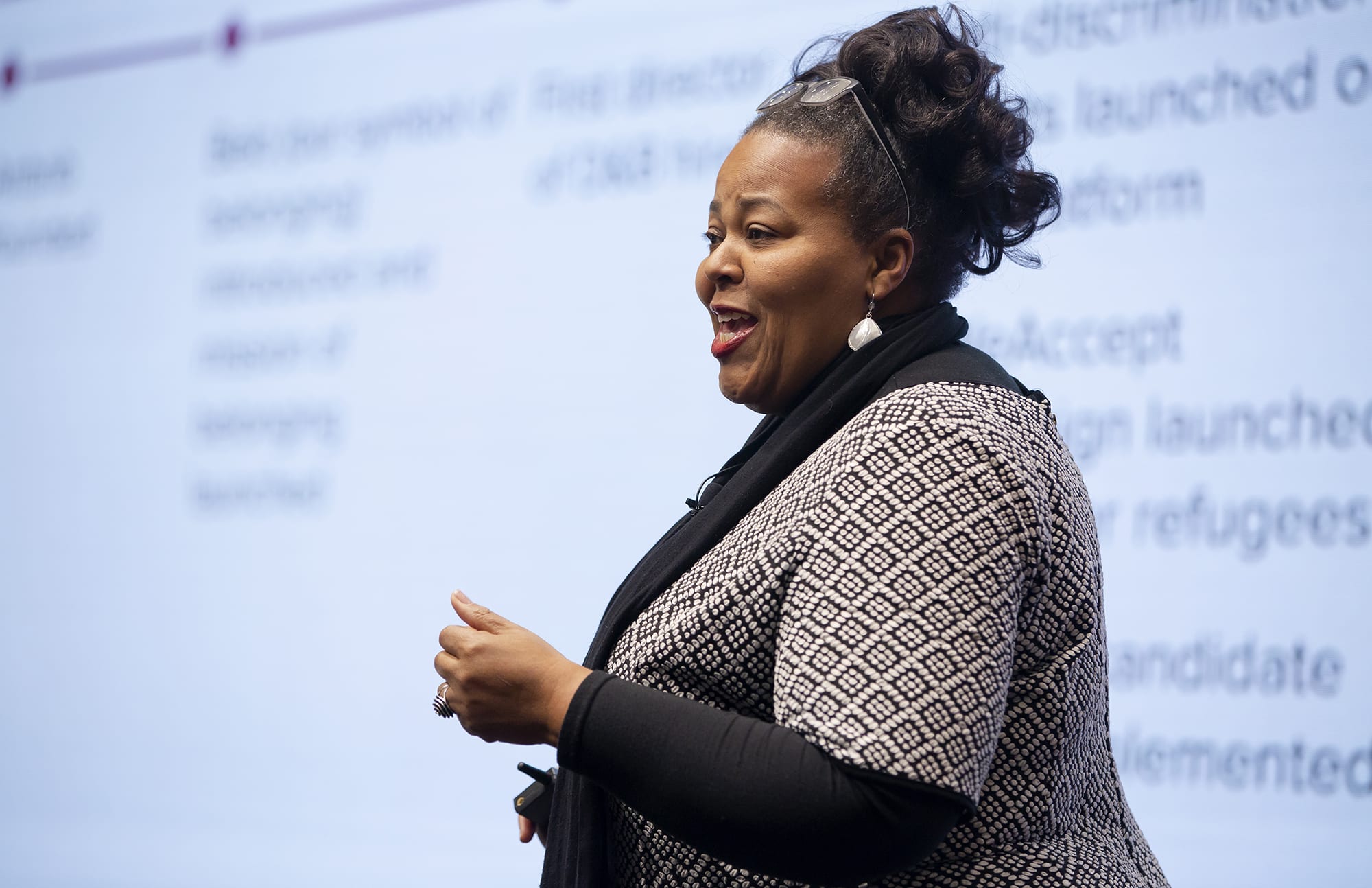
Melissa Thomas-Hunt, head of global diversity and belonging at Airbnb and a conference panelist, said she and her team members would be heading back to work with copious notes and new ideas gleaned from the presentations. Kerr’s talk struck a particular chord.
“I was captivated by (Kerr) talking about tradeoffs in the short-term versus the longer term in creating a culture and sustaining it even when things aren’t going well. That was really poignant and very relevant to organizations, and it’s very hard to orchestrate,” she said.
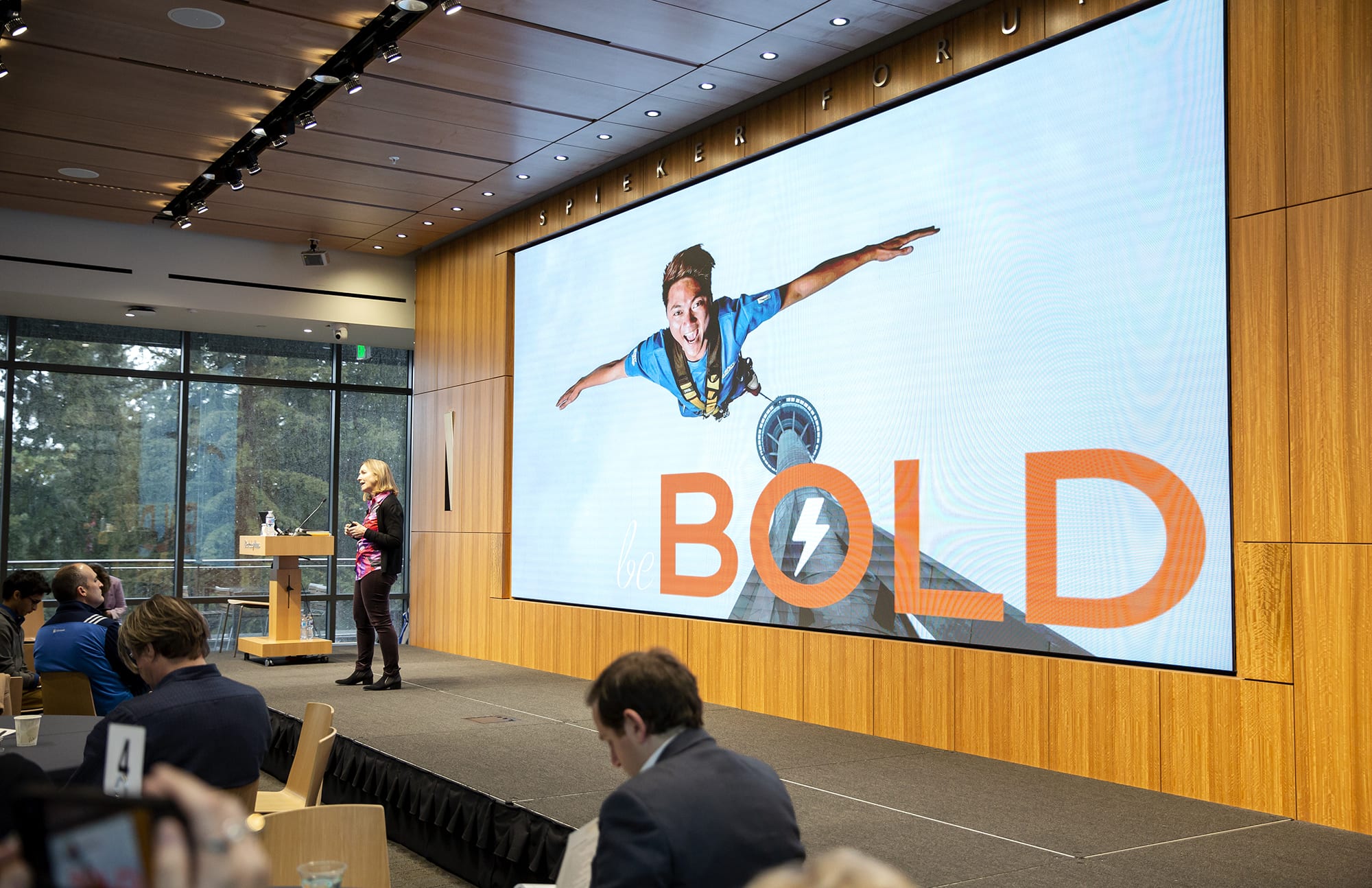
The first day of the conference was devoted to research presentations, with top academics spanning the fields of sociology, social psychology, economics, and strategy presenting their latest research and theoretical work. The second day included panels with business practitioners focused on three themes: linking multiple workplace cultures, creating inclusive workplace cultures, and tools for building and assessing workplace culture.
Speakers represented a diverse array of companies, including Adobe, Airbnb, Chevron, Clorox, Deloitte, Genentech, Google, Microsoft, Netflix, Pixar Animation Studios, and more.
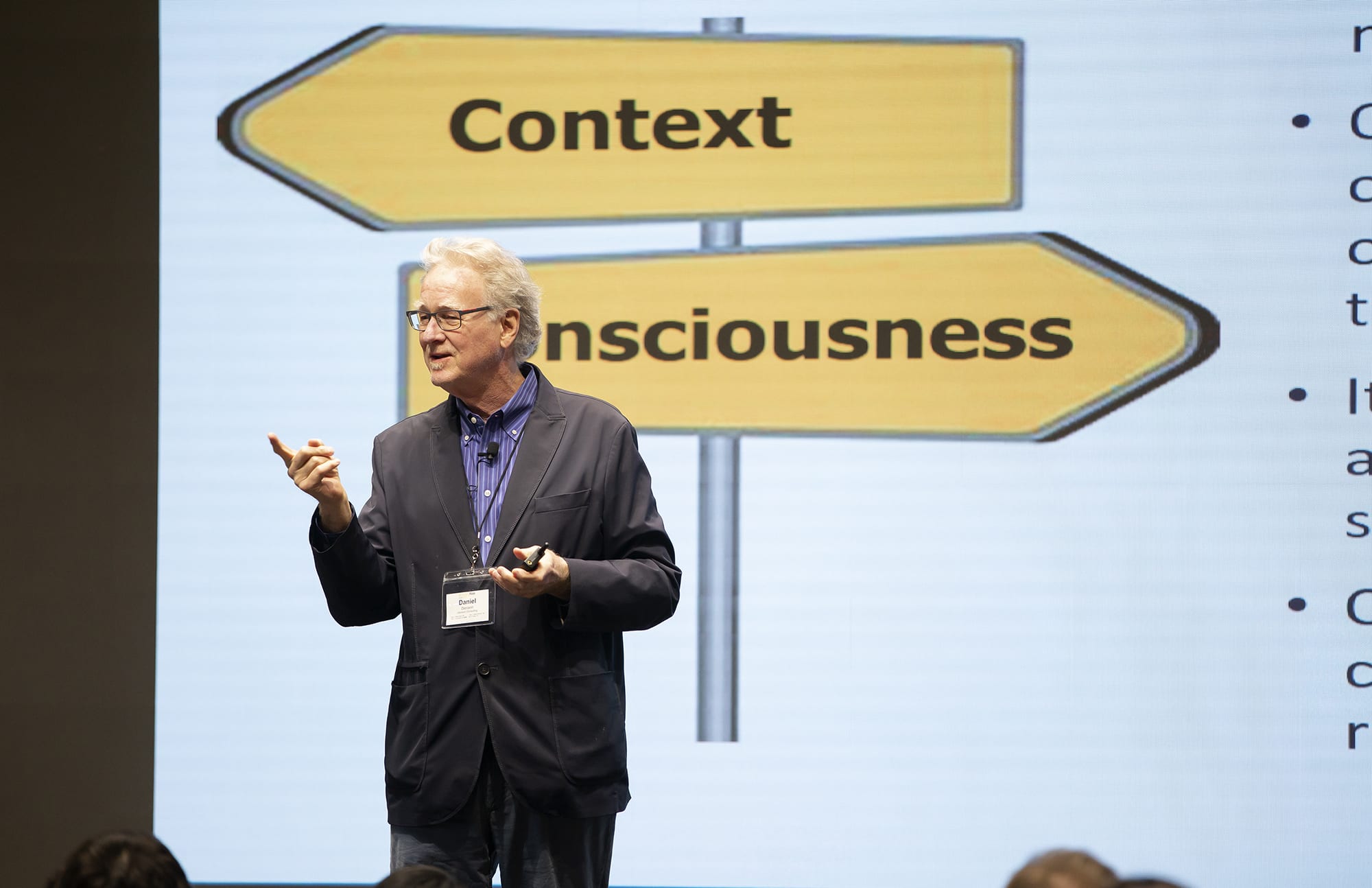
Dan Denison, a professor emeritus at IMD Business School in Switzerland who developed a widely used organizational culture survey tool, said it’s rare to find an event that combines many perspectives at such a high level. “This is a bold initiative on behalf of the Haas School, and it’s already doing a lot to revitalize a research area and a practice area that are near and dear to my heart,” he said, noting that he learned a lot at the conference.
“Emails, IM, chat, WhatsApp, and the capacity to use natural language processing and other text analytic techniques to dive into bigger and bigger pools of data is really starting to make a significant contribution to the understanding of organizational cultures and the impact they have on the performance and competitiveness of organizations,” he said.
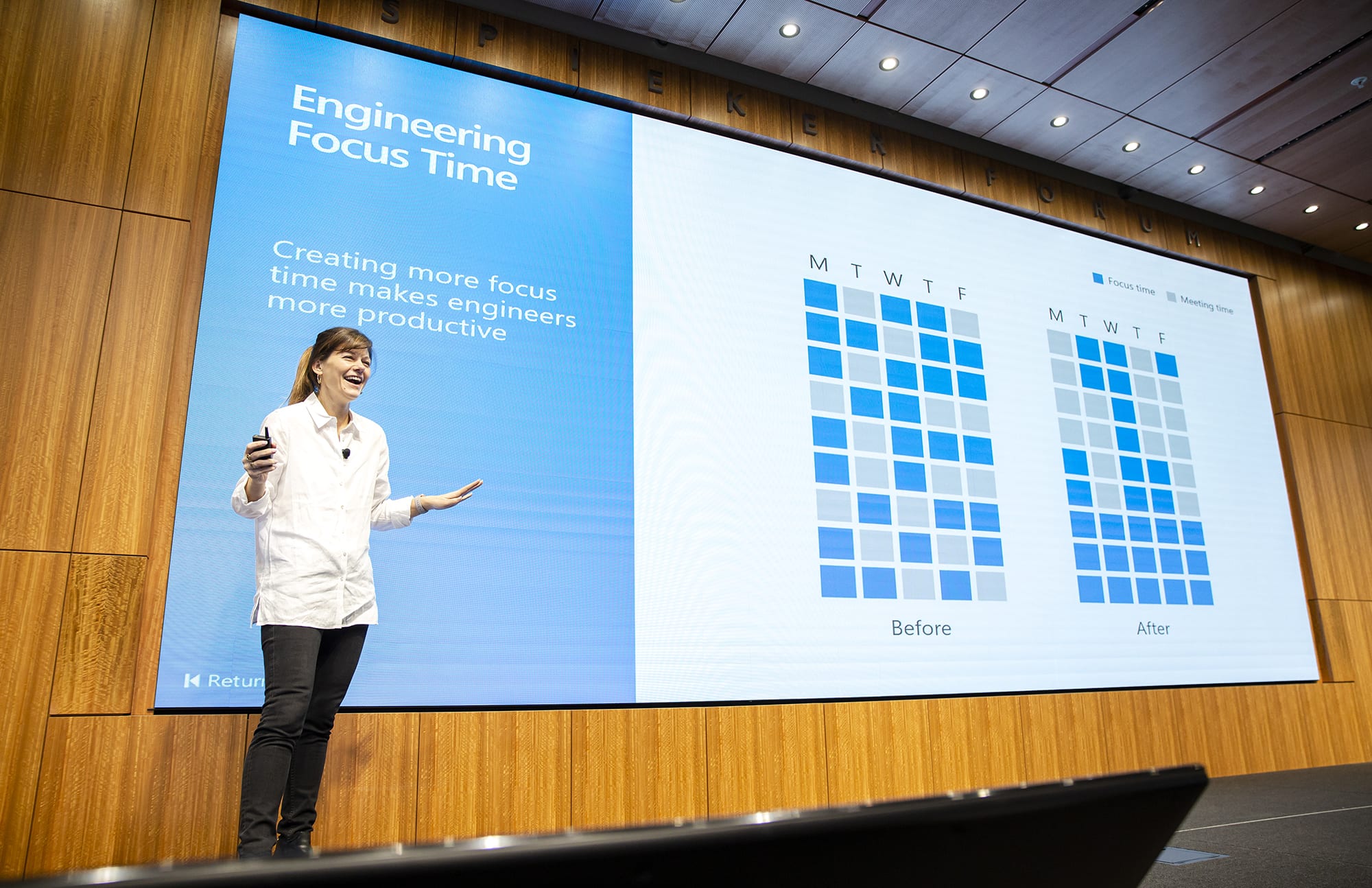
Srivastava and Chatman plan to grow the Berkeley Haas Culture Initiative into a year-round effort, with smaller meetings, research exchanges, newsletters, and other communications in addition to the annual conference. Their ambition is to fuel a data-driven renaissance in the field that will yield useful results for organizations.
“This year’s conference built on the momentum from last year and brought together an even larger community of scholars and industry leaders,” Srivastava said. “We are also transitioning from just having an annual conference to having an ongoing set of activities that will help to keep this community connected and engaged throughout the year.”
